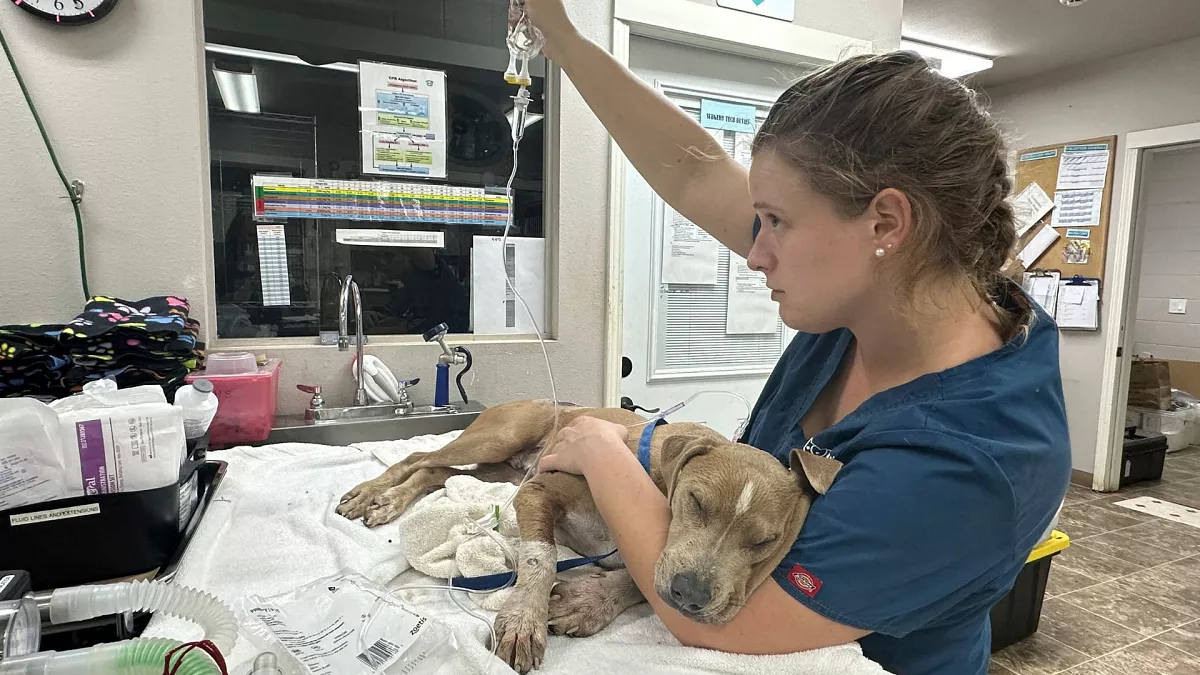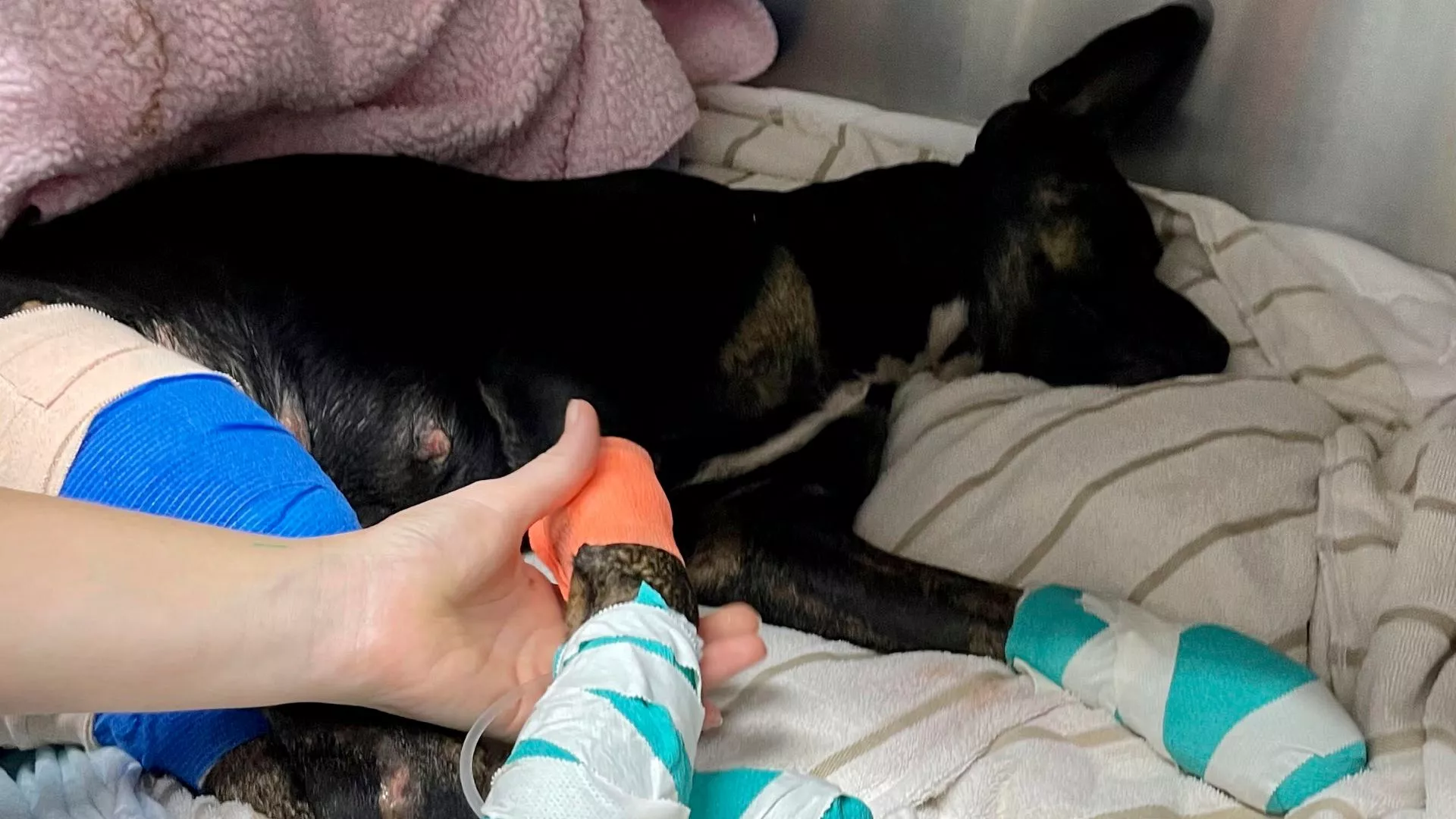As the wildfires raged, pets joined their owners in seeking safety. While some emerged unscathed, many others are still missing, their absence a poignant reminder of the chaos and devastation.

In a heartbreaking scene, a dog with hind legs wrapped tightly in bandages whimpers in pain, a testament to the trials endured during the escape from the inferno. Katie Shannon, spokesperson for the Maui Humane Society, recounts the harrowing stories of animals bearing severe burns and injuries sustained in their flight from the flames.
These animals, both pets and their human companions, bear the physical and emotional scars of their ordeal amidst the smoke and fire that ravaged Hawaii. The wildfires, claiming over a hundred lives and devastating entire communities, have left an indelible mark on the landscape and its inhabitants.
The most devastating wildfire in the United States in over a century has resulted in the loss, injury, or death of countless dogs, cats, and other beloved pets.
According to the Maui Humane Society, approximately 3,000 animals from Lahaina are still missing, prompting a concerted effort to reunite them with their owners and provide medical care for those arriving at clinics with wounds wrapped in blankets.
“We’ve seen a variety of animals seeking refuge, from chickens and lovebirds to rabbits, dogs, cats, and even a pig,” says Shannon.
Rescued animals from Hawaii are currently undergoing treatment for burns sustained during the fires, which were fueled by dry grass and strong winds from a nearby hurricane, reaching speeds of up to 1.6 kilometers per minute.
The heart-wrenching tales of survival are evident in the physical scars left on the animals. A cat arrived with singed fur and leg burns, while a chicken required bandaging for scorched claws.
While some animals were fortunate enough to receive immediate medical attention, others were not as lucky. Tragically, the charred remains of a dog were discovered on a street in Maui.

As search and rescue efforts persist amidst the devastation, animal welfare advocates are collaborating with the Maui Police Department to comb through the burn area in search of lost, injured, or deceased animals.
Lisa Labrecque, CEO of the Maui Humane Society, emphasized at a Monday news conference the importance of expanding their services as the search areas widen.
To assist frightened animals in emerging from hiding, numerous feeding stations have been established, stocked with food and water. Once located, animals are transported to a shelter where veterinary professionals address both burn injuries and smoke inhalation cases.
During the identification process, found animals are scanned for a microchip to facilitate contacting their owners. The Maui Humane Society has urged that deceased animals not be disturbed, allowing for proper cataloging and identification procedures.
Yet, as Shannon notes, this is merely the beginning, and the challenges ahead must be acknowledged, as there is a difficult reality yet to face.


